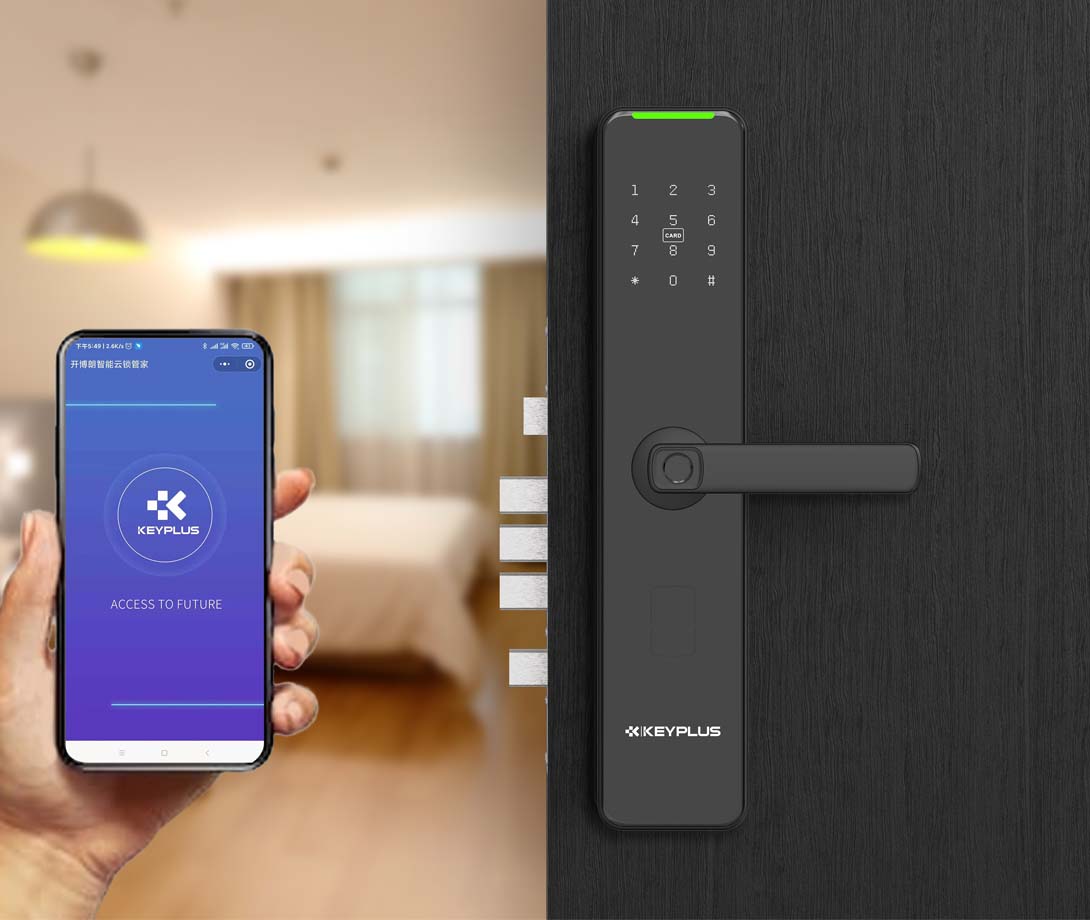What happens to an electronic door lock if power goes out?
Response Mechanisms and Procedures for Hotel Electronic Door Locks During Power Outages (e.g., Battery Drain or External Power Interruptions)
1.Backup Power Mechanism
Battery Power:
Most electronic door locks use replaceable batteries (such as 4-8 AA batteries) as the primary power source, with a typical lifespan of 6 months to 2 years. Even if the external power supply (e.g., for the network module) is interrupted, the battery can still maintain the basic lock functions (e.g., unlocking and verification).
Low Battery Warning:
When the battery power is low, the door lock will alert hotel management through a flashing indicator light, beeping sound, or network notifications to prompt a battery replacement.

2.Emergency Measures When the Battery is Completely Drained
If the battery is completely depleted and not replaced in time, the electronic lock will activate the following backup measures:
Mechanical Key Unlocking
All compliant electronic locks are equipped with a hidden mechanical keyhole (usually located at the bottom or side of the lock body), allowing the use of a physical key for direct unlocking.
Hotels should keep spare mechanical keys for each room in advance and ensure that front desk or security personnel can access them at any time.
Emergency Power Supply Interface
Some locks support external temporary power sources, such as:
Using a 9V square battery to temporarily activate the circuit via contact points on the lock body (common in European and American brands).
Connecting a power bank via USB-C or Micro-USB to temporarily restore electronic functionality and unlock the door.
3.Security and Anti-Tamper Mechanisms
Auto Locking After Power Loss:
Most electronic locks maintain the last state (e.g., if it was locked, it remains locked) during a power outage to prevent unauthorized entry.
Anti-Tampering Alarm:
If someone attempts to forcibly damage the lock during a power outage, some high-end locks can trigger a local alarm (such as continuous beeping) using a backup capacitor.
4.Impact of Network Communication Interruption
Offline Mode:
If the door lock relies on network communication (e.g., Wi-Fi/ZigBee), the network functionality will be interrupted during a power loss. However, local authentication (password, fingerprint, card) will still function normally.
Data Storage and Recovery:
Unlock records are temporarily stored in the lock’s memory and will be automatically synchronized to the hotel management system once power is restored, ensuring no data is lost.
5.Hotel Management Response Measures
Regular Inspections:
Monitor battery levels through the system and replace the batteries of locks with low power in advance.
Emergency Training:
Front desk and security personnel should be familiar with the location of mechanical keys and the emergency power supply procedures.
Customer Communication:
In the event of a sudden power outage, the hotel should proactively assist guests in using backup solutions to unlock the doors, avoiding complaints.
Conclusion
Hotel electronic door locks are designed with power outage scenarios in mind, incorporating a combination of mechanical keys, emergency power supply, and offline functionality to ensure safe locking and unlocking even without power. Their reliability depends on the hotel’s regular maintenance and the execution of emergency protocols, rather than complete dependence on the power system.


